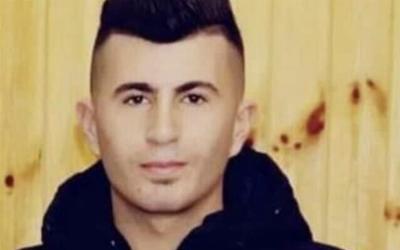Share
Human Rights Voices
While the UN devotes its human rights operations to the demonization of the democratic state of Israel above all others and condemns the United States more often than the vast majority of non-democracies around the world, the voices of real victims around the world must be heard.
Palestinian Authority/Gaza, October 6, 2022
Gay Palestinian living under asylum in Israel murdered, beheaded in Hebron
Original source
A gay Palestinian man living under asylum in Israel was murdered and beheaded Wednesday in the West Bank city of Hebron. The unnamed suspect, who was arrested by Palestinian Authority police near the scene of the crime soon after committing it, recorded the act in a video that he uploaded to social media before his capture.
The victim was 25-year-old Ahmad Abu Murkhiyeh, who according to reports on Ynet and Channel 12 had been living in Israel for the past two years as an asylum-seeker after authorities acknowledged his life would be in danger if he returned to Palestinian territory.
It was not immediately clear how or why the young man ended up in Hebron. Friends of Abu Murkhiyeh in Israel believe he was kidnapped to the West Bank before his murder, though it was not clear that they had evidence of this.
Rita Petrenko, founder of Al-Bayt Al-Mukhtalif, a non-profit organization for the empowerment of the Arab LGBT community, said that she had helped to arrange for Abu Murkhiyeh’s asylum papers in preparation for his eventual resettlement in Canada and that he’d actively participated in LGBT discussion groups. Describing the young man as “hard-working and intelligent,” Petrenko regretted that he had not been transferred to safety in Canada before his life was brutally taken from him.
Israeli sources, the PA police and the Abu Murkhiyeh family have all been unable to clarify if the victim and his killer had any prior relationship. No motive has yet been disclosed as a result of the Palestinian Authority police’s investigation, but the suspect is currently being interrogated.
A spokesman for the PA police, Lu’ay Arziqat, described the beheading as a “new kind of crime in Palestine” and urged people to refrain from circulating the morbid video.
The circumstances surrounding the crime remain unclear while the Palestinian police in Hebron carry out a full investigation.
In an interview with Palestinian radio station Karama, an older member of the victim’s family, also named Ahmad Abu Murkhiyeh, asserted that the young man was residing in his father’s native Jordan but often visited Hebron to work and to spend time with family in the city.
That account contradicted multiple Israeli sources, and was possibly indicative of relatives’ reluctance to acknowledge his reported life in Israel.
Petrenko said that to the best of her knowledge, Abu Murkhiyeh had not returned to the West Bank since his asylum, out of fear for what his estranged family and residents of his native village might do to him. She added that his stay at various LGBT shelters in Israel is a documented fact. He had not informed any friends of an intention to enter the West Bank.
Palestinians have expressed revulsion at the exceptionally violent nature of the crime, even as Abu Murkhiyeh’s sexual identity and Israeli residency have been kept under wraps in Palestinian reports.
The presenter on the Karama radio station distilled the common outrage when saying the beheading “crossed every single red line in our society, whether in terms of morals, customs, or basic humanity.”
The filming of such brutality for distribution on social media has had a particularly shocking effect. Speaking for police, Arziqat said the recording and upload of the video represented “the most dangerous” aspect of a crime he characterized as the most terrible one he’s ever dealt with.
About 90 Palestinians who identify as members of the LGBT community currently live as asylum-seekers in Israel. They suffered discrimination, and, in extreme cases, violence in their communities before fleeing. Until this past July, the law allowed them to reside in Israel but not to work.
Petrenko said that since the law changed, Abu Murkhiyeh had been searching diligently for a stable, legal job, but only managed to find low-paying, under-the-table gigs at restaurants in Tel Aviv’s Sarona neighborhood, one of the city’s upscale culinary hubs.

